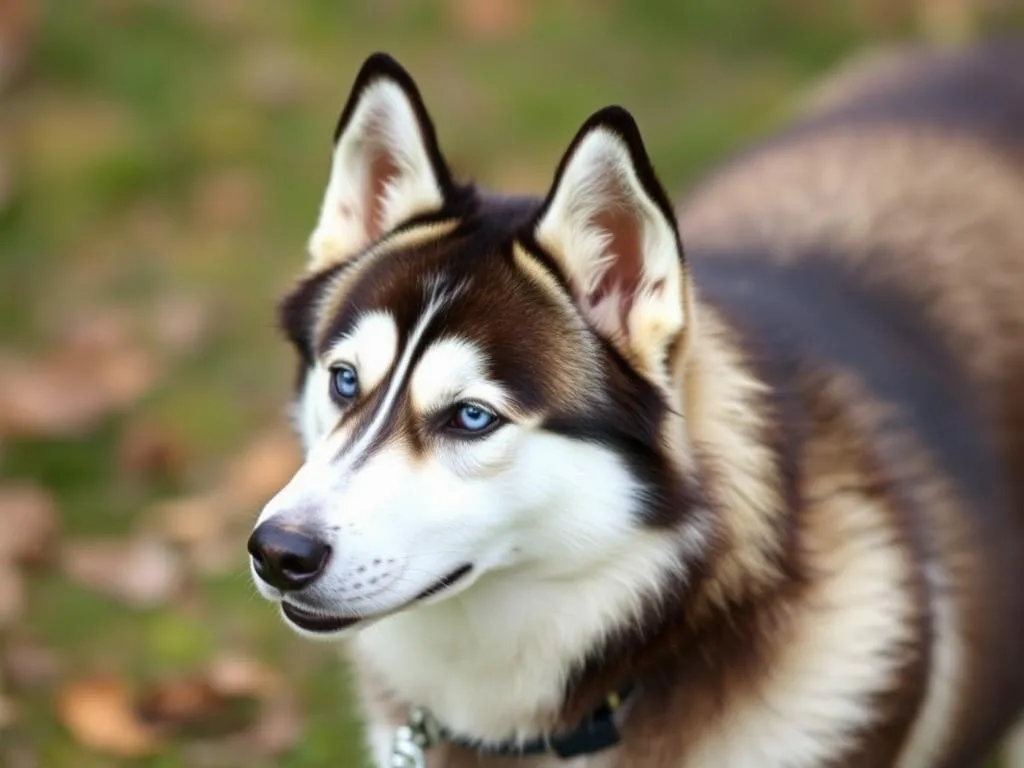
The Siberian Husky is one of the most recognizable dog breeds, known for its striking appearance and vibrant personality. With their wolf-like features and captivating blue or multi-colored eyes, it’s no wonder people are often drawn to them. However, before bringing a Husky into your home, it’s essential to understand their unique characteristics, needs, and whether they truly make good pets.
Understanding the Siberian Husky
Breed History
The Siberian Husky originated in Siberia, where the Chukchi people bred them as working dogs for pulling sleds and herding reindeer. Their history as sled dogs has endowed them with remarkable endurance and strength, making them excellent companions for those who enjoy an active lifestyle. Huskies were brought to Alaska in the early 1900s during the gold rush, quickly gaining popularity due to their speed and agility.
Their heritage as working dogs means that they thrive on physical activity and mental stimulation, which is a crucial factor for potential owners to consider.
Physical Characteristics
Siberian Huskies are medium-sized dogs, typically weighing between 35 to 60 pounds and standing about 20 to 24 inches tall at the shoulder. They have a double coat that can come in various colors, including black, grey, red, and agouti, often with striking white markings.
One of their most distinctive features is their eyes, which can range from blue, brown, or even one of each (heterochromia). Additionally, Huskies possess erect triangular ears, a bushy tail, and a well-muscled body, all contributing to their alluring appearance.
Temperament and Personality
In terms of temperament, Huskies are known for being friendly, energetic, and independent. They are social dogs that usually get along well with other pets and humans alike. However, their strong-willed nature can pose challenges during training, as they may exhibit stubbornness or an inclination to escape if not properly managed.
Understanding their personality is vital for prospective owners. While they are affectionate and playful, Huskies require consistent training and socialization to curb any inherent behavioral challenges.
Huskies’ Needs and Care
Exercise Requirements
Huskies are high-energy dogs that require ample exercise to stay healthy and happy. On average, they need at least 1 to 2 hours of vigorous activity each day. This could include running, hiking, biking, or engaging in playtime in a secure yard.
Activities like agility training or obedience classes can also help channel their energy positively. Without sufficient exercise, Huskies may become bored and develop destructive behaviors.
Grooming Needs
Their thick double coat sheds heavily, especially during seasonal changes. Regular grooming is essential; brushing them at least 2 to 3 times a week can help manage shedding and keep their coat healthy. During shedding seasons, more frequent brushing may be required.
Bathing should be done sparingly since over-bathing can strip their coat of natural oils. Regular grooming not only keeps their coat in top condition but also provides an opportunity to bond with your pet.
Diet and Nutrition
A balanced diet is crucial for maintaining a healthy weight and overall well-being in Huskies. High-quality dog food formulated for active breeds is recommended. Owners should be mindful of their Husky’s caloric intake, as these dogs can easily gain weight if overfed, especially given their natural propensity for activity.
Consulting with a veterinarian for specific dietary recommendations tailored to your Husky’s age, weight, and activity level is always a good practice.
Training and Socialization
Training Challenges
Training a Husky can be a rewarding but challenging endeavor. Their independent nature means they may not always listen immediately, leading to potential behavioral issues. Common challenges include their tendency to escape and stubbornness during training sessions.
Early socialization and training are critical. Introducing your Husky to various environments and experiences from a young age can help mitigate some of these challenges.
Effective Training Techniques
Positive reinforcement is the most effective training method for Huskies. Treats, praise, and playtime can motivate them to learn commands and desired behaviors. Consider enrolling in puppy classes or obedience training to establish a solid foundation for your Husky.
Consistency is key in training. Establishing a routine can help your Husky understand expectations and boundaries.
Socialization Tips
Socialization is vital for Huskies to develop good manners and a well-rounded personality. Expose them to different people, environments, and other animals early on. This can be achieved through puppy classes, dog parks, or supervised playdates with other dogs.
Encouraging positive interactions will help Huskies become more adaptable and reduce the chance of fear or aggression issues later in life.
Suitability as Pets
Ideal Owner Profile
Huskies thrive best in environments where they have ample space to run and play. They are well-suited for active families or individuals who enjoy outdoor activities. An ideal owner should be prepared to commit time for daily exercise and mental stimulation.
Those living in apartments or homes without adequate space may find it challenging to meet a Husky’s needs.
Compatibility with Families
Siberian Huskies are known to be good with children and can be friendly companions for families. They generally have a playful nature, making them great playmates. However, supervision is recommended, especially with younger children, due to their energetic and sometimes boisterous behavior.
Huskies can also coexist with other pets, although early socialization is crucial for developing positive interactions.
Pros and Cons of Owning a Husky
Owning a Husky comes with its share of advantages and disadvantages.
Pros:
– Companionship: Huskies are known for their loyalty and affection towards their families.
– Playfulness: Their energetic nature makes them fun companions for outdoor activities and play.
– Intelligence: Huskies are intelligent and can learn various tricks and commands, especially with positive reinforcement.
Cons:
– High Energy Levels: Huskies require significant exercise, which may not suit everyone’s lifestyle.
– Stubbornness: Their independent nature can make training a challenge, requiring patience and consistency.
– Escape Artists: Huskies are known for their ability to escape from yards and homes if not securely contained.
Real-Life Experiences
Testimonials from Husky Owners
Many current Husky owners describe their experiences as filled with joy and challenges alike. One owner notes, “My Husky has brought so much energy and love into our home, but keeping up with her exercise needs can be a real workout for me!”
Another reflects on the training aspect: “Training my Husky was tough at first, but once we found the right techniques, it became a rewarding experience for both of us.”
Common themes in these testimonials highlight the need for commitment and understanding of the breed’s unique characteristics.
Case Studies
Several families have successfully integrated Huskies into their lives, showcasing the breed’s adaptability. One family shared their experience of adopting a Husky from a shelter and how he quickly became a beloved member of their household, thriving with daily hikes and playtime in the backyard.
Comparisons with other breeds reveal that while some dogs may require less exercise, the bonds formed with Huskies are often described as deeply rewarding. The combination of their loyalty and spirited nature makes them a cherished addition to many families.
Conclusion
In summary, Huskies can make excellent pets for the right owner. They are energetic, loving, and full of personality, but they also come with specific needs and challenges. Understanding their history, physical characteristics, exercise requirements, and training needs is crucial for potential owners.
Ultimately, whether a Husky is a good fit for your family depends on your lifestyle, commitment, and readiness to embrace both the joys and challenges that come with this remarkable breed. If you believe you can provide the time, space, and love they require, a Husky could be the perfect companion for you.








